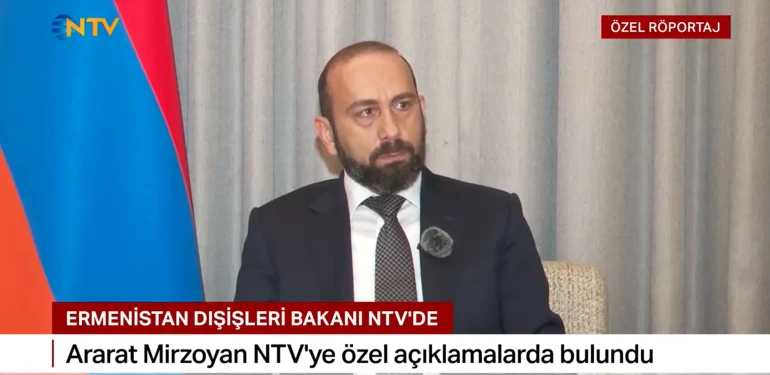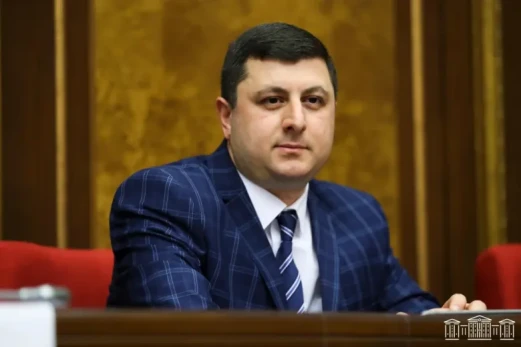Within the framework of the Antalya's Diplomatic Forum, Armenian Foreign Minister Ararat Mirzoyan gave an interview to the Turkish NTV TV company.
Question: I will talk about the peace agreement, about which two sides have already reached an agreement. However, first, however, I would like to touch upon the panel discussion, which has already taken place with the Azerbaijani Foreign Minister.
We understand that both sides have tried to present their positions. How would you assess that discussion? It was somewhat tense or just the parties presented their views. What about it?
Ararat Mirzoyan. I will say that it was a constructive discussion. You know, we have had many opportunities to exchange my partner with Mr. Bayramov, both behind closed doors, in the negotiations and open public discussions. This was another opportunity to exchange views.
Of course, there are differences between perceptions, and now we will most likely talk about it a little. At the same time, however, this is an opportunity to try to bring the positions closer. In this regard, any discussion is always useful.
Question: Yes, it is certainly the best approach. I would like to address the Peace Agreement. As it is known, both sides have already agreed on the document. In your opinion, taking into account the current positions of the parties, when can that signal take place?
Ararat Mirzoyan. Really, first of all, it is necessary to appreciate what has already happened. This is an unprecedented, historic event. Armenia and Azerbaijan have agreed on the text of the Armenia-Azerbaijan Peace Agreement. Text in which Armenia and Azerbaijan have mutually recognized each other's territorial integrity that existed as Soviet Socialist Republics at the time of the collapse of the Soviet Union.
The parties agreed not to interfere in each other's internal affairs, as well as agreement on a number of other important provisions. In addition, in case of ratification and entry into force of the above document, it is planned to establish a bilateral commission, which will control the implementation of the contract and serve as a platform for any misunderstanding or specific situations. All this is really a historic event. Now we think that it is possible to start consultations immediately, the place of signing the signing, time and a clear date.
Question: It is possible that the signing of the agreement will take place in a third country. How would you rate this issue, and what do you think about that opportunity?
Ararat Mirzoyan. It can be on the border between Armenia and Azerbaijan, it can be in a third country that will be acceptable to both Yerevan and Baku. All this can be discussed. However, it should be noted that immediately after the publication of the agreement on the text, the Azerbaijani side made a number of preconditions related to the Minsk Group and the Constitution. There may also be other thoughts, how much I understand.
Question: Mr. Bayramov also mentioned this during the discussion.
Ararat Mirzoyan. Our approach is as follows. We can start the process by putting one brick, then another one, and after a while we can see that we built together, for example, a strong bridge. Or we can sit down and wait for several hundred years, trying to understand whether the former approaches are no longer applicable whether the conflict is really over, or there are still obstacles. However, our position is that it is necessary to focus on the constructive side of the issue, focus on the possibilities of the future, not continuously deepen in the past and see only obstacles.
Touching upon some ideas made by the Azerbaijani side, especially the Minsk Group, I would like to note that our position is clearly known. If we acknowledge that the conflict is over and this fact is confirmed by a peace treaty, then neither the Minsk Group nor its structures no longer expedient. It was with this logic, we have offered to sign two documents on the same day, the peace agreement, as well as the joint application of the OSCE or its member states, which will resume the process of liquidation of the Minsk Group.


